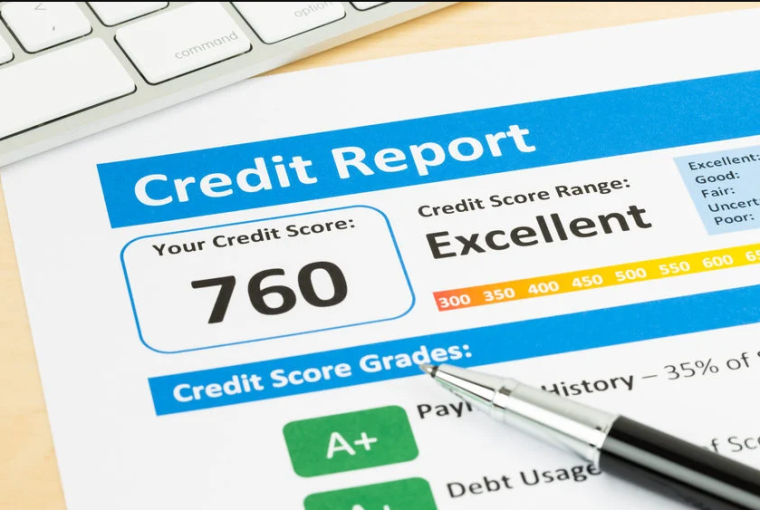Your credit report is a detailed record of your credit history, including loans, credit cards, and other financial activities. It plays a crucial role in your financial life, influencing your ability to obtain loans, secure favorable interest rates, and sometimes even impacting job opportunities. Understanding how to read, interpret, and, if necessary, correct your credit report is essential for maintaining financial health.
The Importance of Regular Credit Report Checks
Regularly reviewing your credit report is critical for several reasons. It allows you to verify that your financial information is accurate and up-to-date, ensuring that you are in a good position to apply for credit when needed. Additionally, it helps you to spot any potential signs of identity theft early, such as accounts you did not open or inquiries you did not authorize.
- Accuracy and Up-to-Date Information: Your credit report should accurately reflect your current financial situation. This includes correct balances on accounts, payment histories, and personal information. Errors can occur due to reporting mistakes by lenders or as a result of fraudulent activity.
- Spotting Identity Theft: Regular checks can help you identify any unusual activity that might indicate your personal information has been compromised. This includes unfamiliar accounts, credit inquiries, or public records that don’t belong to you.
Identifying Errors on Your Credit Report
When reviewing your credit report, pay close attention to every section. Errors can range from minor inaccuracies in personal information to major discrepancies in account details or fraudulent accounts.
- Personal Information: Verify your name, address, Social Security Number, and employment information for any inaccuracies.
- Account Details: Look at the status of each account, including whether it’s open or closed, the balance, payment history, and the date it was opened. Ensure that all accounts listed are indeed yours and that the details are correct.
- Inquiries: Check the list of inquiries to confirm that you authorized each one. Unrecognized inquiries could be a sign of identity theft.
Steps to Take When You Spot an Error
If you find an error on your credit report, it’s important to take immediate action to correct it. This process involves contacting the credit reporting agency (CRA) and the creditor supplying the information.
- Dispute the Error with the Credit Reporting Agency: You can dispute any inaccuracies on your report directly with the CRAs (Experian, TransUnion, and Equifax). This can typically be done online, by mail, or over the phone. Provide as much evidence as possible to support your claim, including account statements or letters from the creditor.
- Contact the Creditor: In addition to disputing the error with the CRA, contact the creditor who reported the information. This could be a bank, credit card company, or other lender. Inform them of the mistake and provide any evidence you have to prove your claim.
Seeking Professional Help: Top Credit Repair Companies
Sometimes, managing your credit report and disputing errors can be complicated and time-consuming. If you find yourself overwhelmed or unsure where to start, seeking assistance from one of the top credit repair companies might be a beneficial step. These companies specialize in identifying errors on your credit report, disputing inaccuracies with credit bureaus and creditors, and providing guidance on improving your credit score.
- Expertise and Experience: Top credit repair companies have the expertise and experience to navigate the complexities of the credit reporting system. They can often identify errors you might overlook and understand the best strategies for disputing them effectively.
- Time-saving: Disputing credit report errors can be a lengthy process, requiring detailed communication with credit bureaus and creditors. A credit repair service can handle these tasks on your behalf, saving you time and effort.
- Advisory Services: Beyond disputing errors, these companies can offer valuable advice on improving your credit health, managing debt, and maintaining a good credit score over time.
When considering a credit repair company, it’s important to research, read reviews, and understand the fees and services offered. Remember, while these companies can assist, no one can legally remove accurate and timely negative information from a credit report.
Preventing Future Errors on Your Credit Report
While addressing any errors on your credit report is crucial, taking proactive steps to prevent future mistakes is equally important. This includes regularly monitoring your credit report, managing your finances responsibly, and protecting your personal information.
- Regular Monitoring: Take advantage of the free annual credit report available from each of the three major CRAs through AnnualCreditReport.com. Consider using a credit monitoring service that alerts you to changes in your credit report.
- Financial Management: Keep records of your accounts, payments, and any communications with creditors. Being organized can help you quickly identify and address any discrepancies on your credit report.
- Protect Your Personal Information: Be cautious about sharing personal information, especially online. Use strong, unique passwords for financial accounts and monitor your bank and credit card statements for unauthorized transactions.
Conclusion
Understanding your credit report is an indispensable aspect of managing your financial health. Regularly reviewing your report, being able to spot and correct any errors, and taking steps to prevent inaccuracies are all crucial practices.
By staying informed and proactive, you can help ensure your credit report accurately reflects your financial history and behavior, thus safeguarding your financial future. Remember, your credit report reflects your financial reliability; maintaining its accuracy is in your best interest.
- Online casino’s safeguards against crime - January 8, 2025
- The Best Slot Games For Low-Budget Play - December 14, 2024
- From Mob Mentality to Digital Thrills - December 10, 2024








